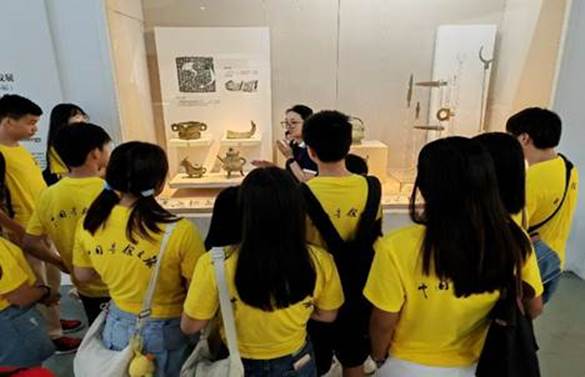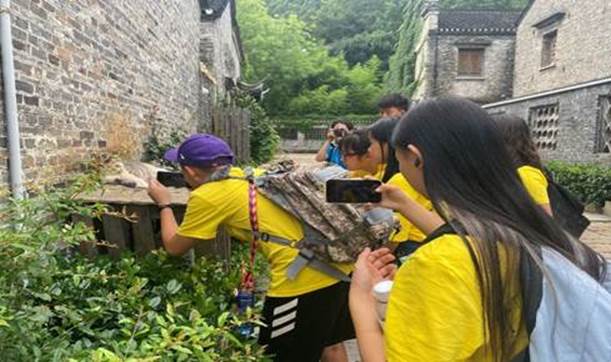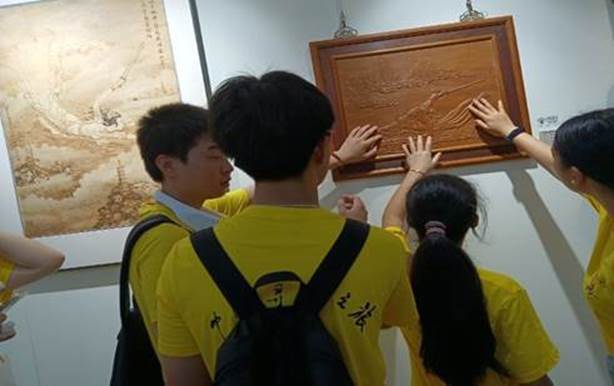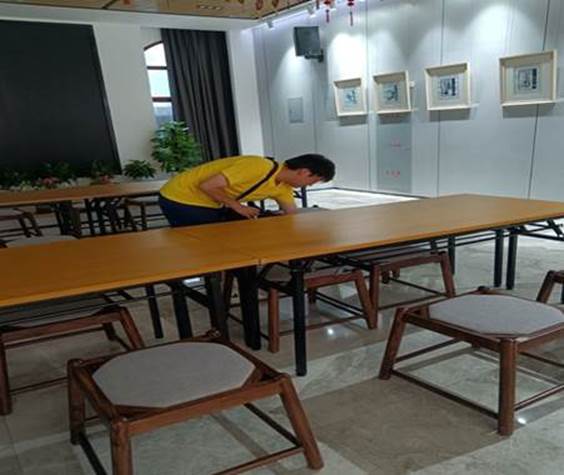On July 21st, it was the third day of the "China Root-Seeking Tour" summer camp in Zhenjiang, Jiangsu. On the way to Xijin Ferry, the campers enthusiastically recited "Anchoring Boats on Guazhou": "There is a river between Jingkou and Guazhou and There are only a few mountains from here to Zhongshan" Everyone felt the romantic history and culture of Zhenjiang,and eager to go to Zhenjiang museum.
The Zhenjiang Museum is an important place for showcasing the cultural heritage of Zhenjiang. The campers followed the interpreters to appreciate this "poetic art palace". In the ceramic exhibition hall, volunteers and the campers communicated enthusiastically. The volunteers guided the campers to discover the historical changes behind the ceramics, and experience the art of perfect fusion of fire and earth. , Jin Yuxi, from Germany also introduced her experience of handcrafting ceramics in Germany. Through communication and interaction, the friendship between them gradually deepened

The city by the river has developed due to ferries, and Xijin Ferry is a "living history" of Zhenjiang, recording the history of Zhenjiang. The campers visited the Xijin block with curiosity and anticipation. As the campers looked towards Yuntai Mountain from the viewing deck, the narrator told the historical story of Yuntai Mountain. Originally, the legendary plan of Zhuge Liang to burn the Red Cliff was born on this mountain, so it was named after " Divination ", symbolizing strategic planning and clever divination. The campers heard Zhuge Liang and Zhou Yu, remembered the familiar stories of the Three Kingdoms, and gained a new understanding of the Xijin Ferry.

After the tour of Xijindu, the campers went to the Zhenjiang Folk Museum. They searched for Xu Xian, Bai Niangzi, Fahai, and Jinshan Temple on the screen of "The Legend of the White Snake"; and they gently touched the golden sandalwood carved with the white lady stealing fairy grass, feeling the craftsmanship of folk handicrafts.

German campers Yang Qihua and Tang Yong also actively consulted with the narrator on the Chinese folk tradition of eating Sazi. The narrator said, "When eating Sazi, there is a crackling sound in the mouth, symbolizing auspiciousness and prosperity." The campers suddenly realized and raised their thumbs one after another.
It is worth mentioning that when leaving the Museum, Spanish camper Zhou Yilin returned all the chairs to their original positions The small heartwarming gesture made the museum staff appreciate it greatly, and also made the campers feel proud.
